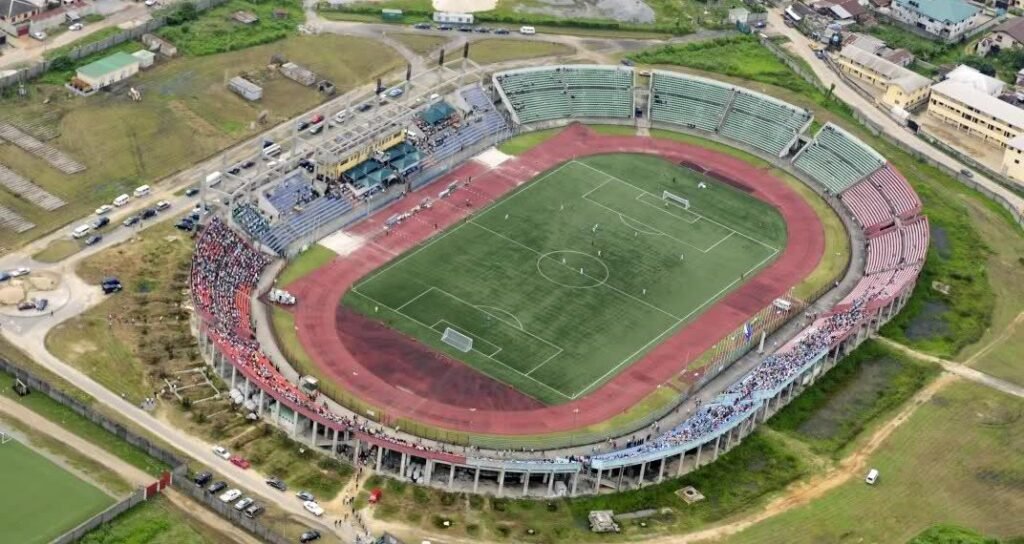Sport Business and Nigeria
“Sports is business” is almost a cliché in the Nigerian football sphere but the actual practice of this statement is relatively a herculean task in a country blessed with brains and brawns.
Recently, the Minister of Youth and Sports, Honourable Sunday Dare, initiated a move to transform the classification of sports in the country from mere recreation to a profitable economic activity in Nigeria.
This has triggered mixed reactions from the populace. Some praise the move while others are questioning what delayed the move to embrace the reality that has engulfed the global sports industry. Nevertheless, the supposed giant of Africa has presumably woken from her slumber and sports could lead the way in a country failing on many fronts.
Experts claim that the sports industry could provide about 1 million jobs in Nigeria and contribute nearly 4% of the country’s GDP. These are enticing figures, but they do not overshadow the current challenges bedeviling the sector, part of which is the branding of teams and athletes.
Sports branding is simply the representation and communication of the ideology of a team or athlete. This helps the sports subject build trust with fans and possibly attract commercial deals usually with respect to performance and reach.
Integral is the leading African sport management company with headquarters in Nigeria. The company recently announced a partnership with one of the most prominent global football agencies, Family and Football, the agency company that manages Arsenal midfielder and 2014 FIFA World Cup winner, Mesut Ozil.
Such a partnership is a rare occurrence in the Nigerian sports business sphere. Head Talent Management at Integral, Murtala Lanval, highlighted the challenges affecting branding of sports subjects in Nigeria and the possible solutions.
“Our system does not absorb the branding of local talents and you can understand why. We don’t have local competitions. You have a joke of a football league.
Which company in its right minds commits to sponsoring a league where there are no calendar dates that are refined, there is no broadcast of the games, there is no discipline from stakeholders, where you find owners of the club getting on the field and committing certain atrocities. It is all broken! So a system that is broken is not one that will attract commercial interests,” he said.
However, Lanval suggested incorporating technocrats into the foundational planning of any structure in the sports industry. He hints this as means of attaining lasting solutions that will enhance the process of branding which extensively develops the business arm of the industry.
“We need to start having competitions that are value-driven. They must be committed to giving value to consumers and businesses, such that businesses see those values and they are attracted,” said Lanval.
“It is time administrators treat sports as a business. That means they need to bring in businessmen to come and put it together. They need to call business people to a round table and explain what is their goal.
Call the broadcasters, call potential sponsors, call the media, call everybody at different sessions, and ask them how to achieve these goals. But the mistake we always make is that the administrators think they are the experts. Even FIFA or UEFA don’t think they are the experts. They give other companies the right to media, sponsorship rights, event management rights, logistics rights, etc. You cannot succeed in this industry without collaboration with experts from other concerned sectors,” he concluded.
It is obvious that Nigeria will not need a foreigner to make things work aright in the country. The required step is to play by the globally-practiced rulebook that ensures an attractive and enabling room is created for business entities.
The Minister of Youths and Sports Development has triggered a move that counts ultimately define his tenure. I hope he succeeds at it. I hope Abu Azeez would be able to successfully build an easily recognizable brand for himself.
I hope Enyimba Football Club would eventually go the capitalist way and take advantage of their large fan base. I hope Odion Ighalo and Mikel Obi feel the urge to retire in a Nigerian club.
I hope athletes such as Ese Brume and Divine Oduduru would not have to leave the shores of Nigeria before enhancing their chances at the world stage. Ultimately, I hope “sports is business” translates from cliché to reality in Nigeria.

